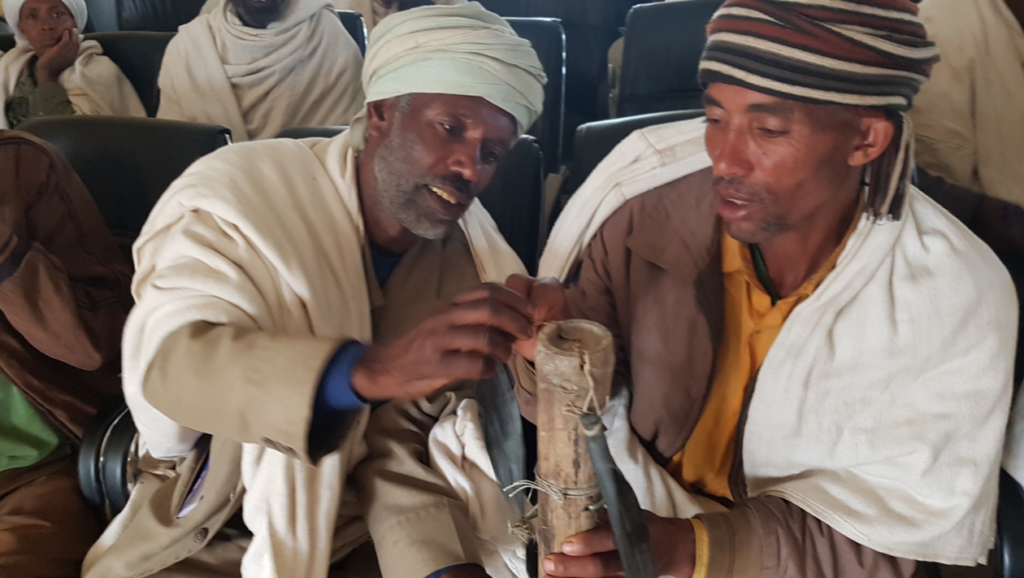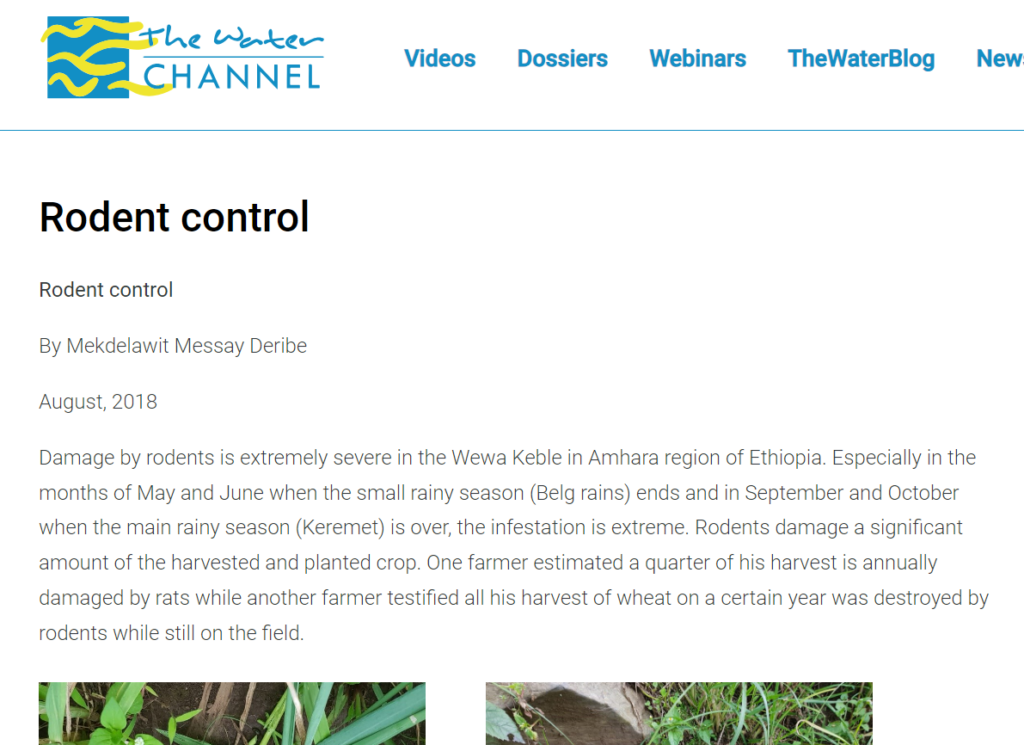Programs we are proud of
Intro borro bererro te volo voloreribus rerum aliquis expersperrum eum num fugit, eris pos ad maximus non nem repedis aliqui con non core eos alitate nem coritatur mossit verspel in re eos debitat aboriberovid expedis num quid est, quundis autatur, eumquibuscia ide niscitiis idus ipsam fugitia delenisimus voluptaquia cum in cus.
Filter
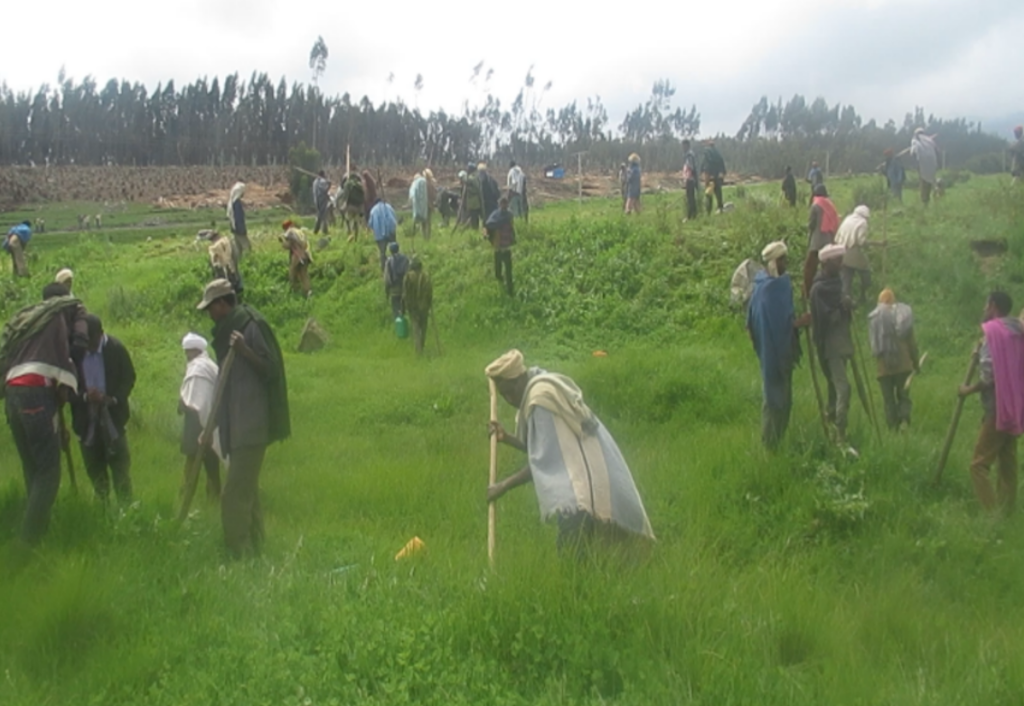
Establishing EBRM in Ethiopia – Part 3: Collective implementation and ways forward
This is the third in a series of blog posts describing the development and implementation of ecological-based rodent management (EBRM) in Ethiopia. It describes … Continued
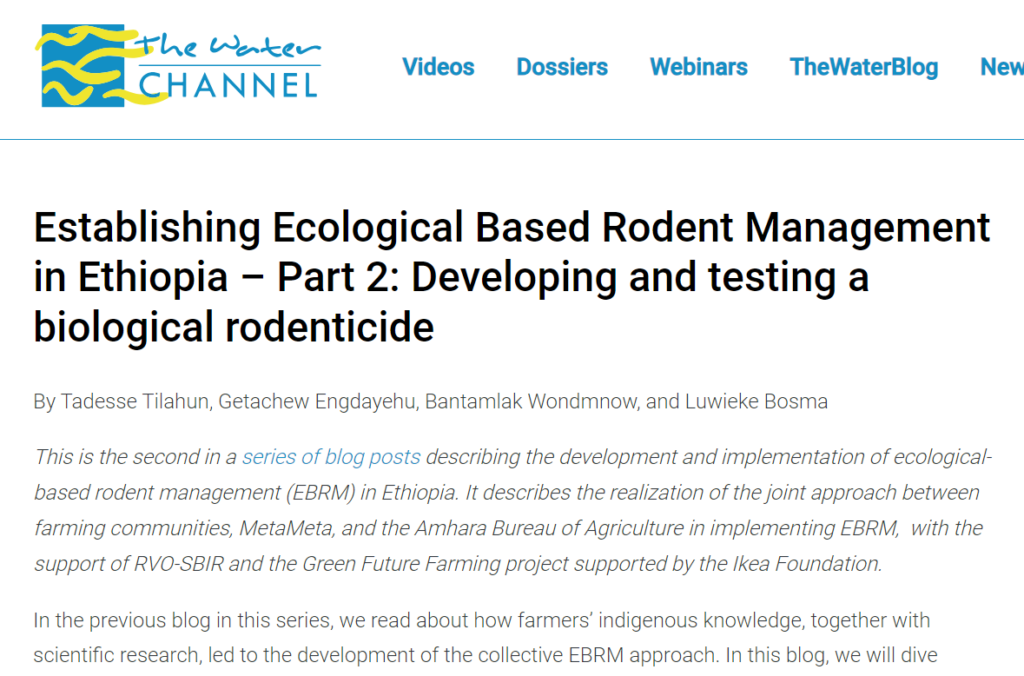
Establishing EBRM part 2: Developing and testing a biological rodenticide in Ethiopia
This is the second in a series of blog posts describing the development and implementation of ecological-based rodent management (EBRM) in Ethiopia. It describes … Continued
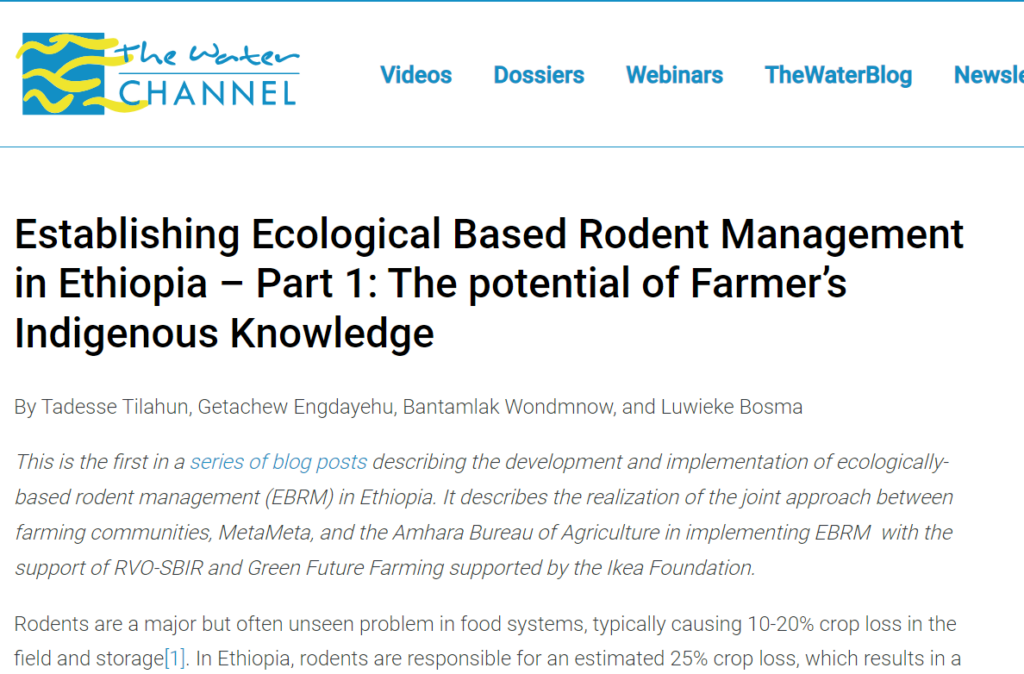
Establishing EBRM in Ethiopia – Part 1: The potential of Farmer’s Indigenous Knowledge
This is the first in a series of blog posts describing the development and implementation of ecologically-based rodent management (EBRM) in Ethiopia. It describes … Continued
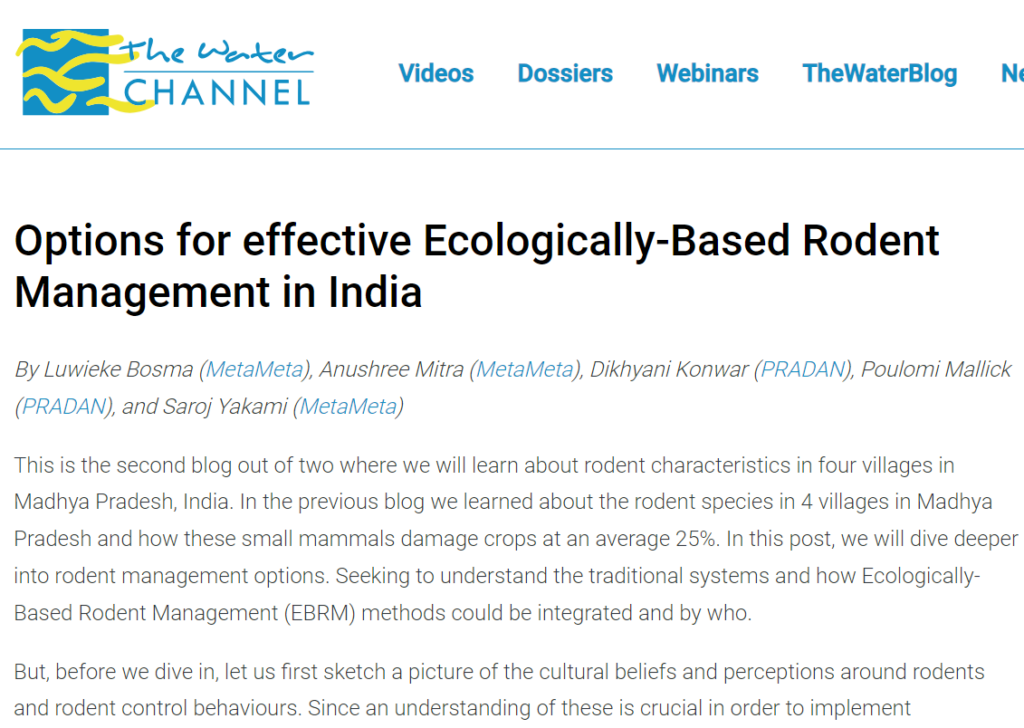
Options for effective Ecologically-Based Rodent Management in India
Blog on rodent management options in India Read more >

Call to action: Let’s work together to curtail rodents harmful impact on food production in India
Blog about the EBRM movement in Madhya Pradesh and Jharkhand, India. Read blog >
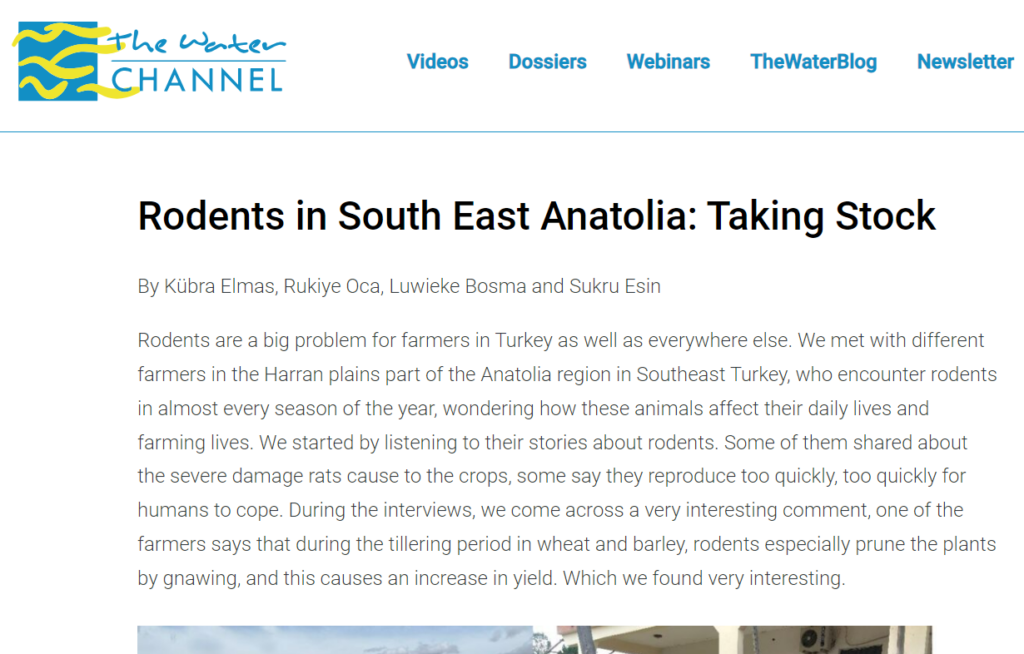
Rodents in South East Anatolia: Taking Stock
Blog about rats damage and incidence in Turkey Read blog >
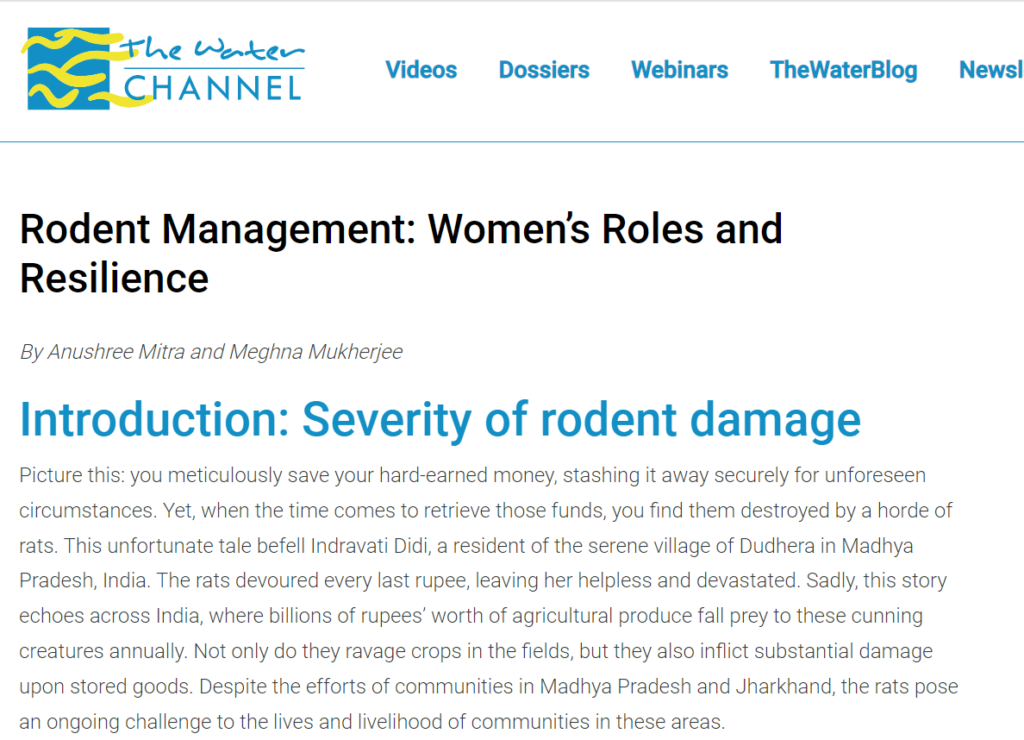
Rodent Management: Women’s Roles and Resilience
Blog on the involvement of women in rodent management strategies. Read blog >
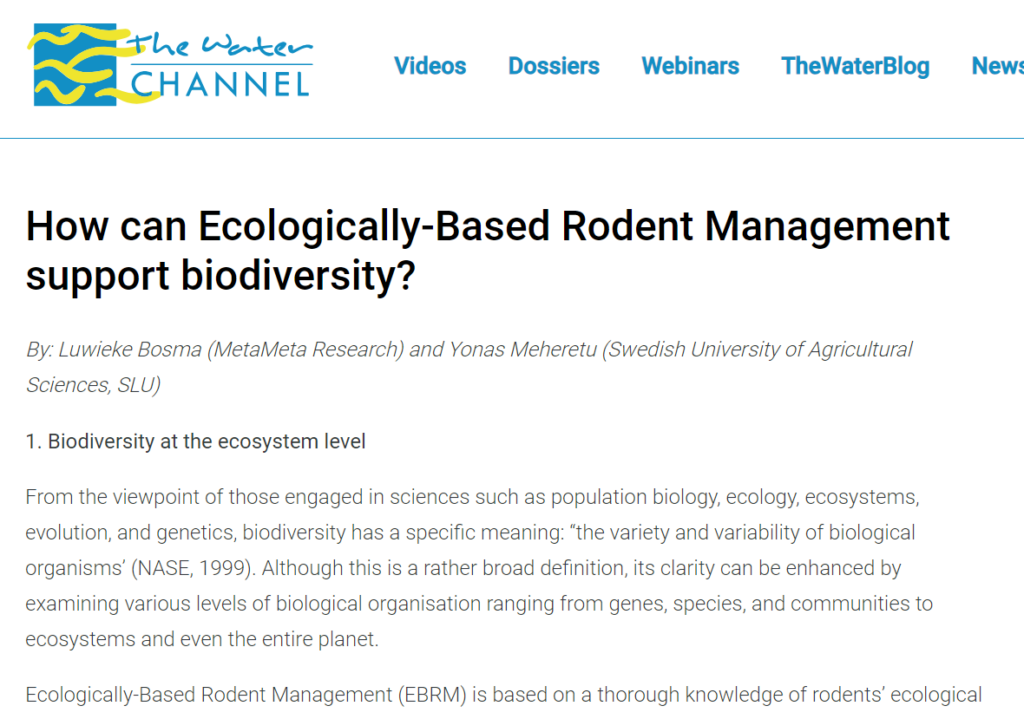
How can Ecologically-Based Rodent Management support biodiversity?
Blog on the link between EBRM strategies and biodiversity Read blog >

